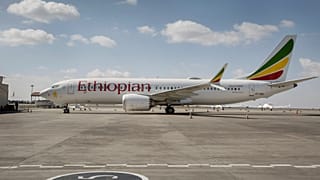Ethiopia
Finance Minister Ahmed Shide told parliament that the economy was forecast to expand 8.9% in fiscal year 2025/2026.
It had been originally projected to grow 8.4%.
Ethiopia, one of Africa's fastest growing economies remains tied down by debt debt, inflation and currency shortages.
Last year, Addis Ababa secured a $3.4 billion bailout from the International Monetary Fund (IMF) after receiving guarantees for debt relief from major creditors including China and the Paris Club.
In exchange, it agreed to stop propping up its currency and to carry out a 30% devaluation.
That condition has been partly blamed for rampant inflation which stood at 14.4% in April.
As a measure, the central bank has maintained tighter control over money supply and limited private-sector lending. Ethiopia is also required to open its banking and telecom sector to foreign investment.
Ethiopia's economy has suffered back to back blows from Covid-19, a war in the northern region of Tigray and conflict in Ukraine.











00:00
IMF approves final review for loan to Zambia, unlocking $190 million
01:11
IMF team to visit Gabon as authorities plan reform program
00:40
IMF approves new $261 million disbursement for Ethiopia
00:47
Ghana settles $1.47 billion energy sector debt to restore power stability
01:13
Construction gets underway in Ethiopia on 'Africa's biggest airport'
01:00
Senegal prime minister says country will not seek debt restructuring